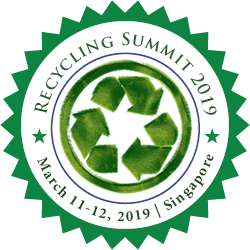
Florence Barbara Awino
University Of Canberra, Bruce, ACT 2617, Australia
Title: Impacts and risks of solid waste management in developed and developing countries
Biography
Biography: Florence Barbara Awino
Abstract
Solid waste management is a public health threat as globalization of transport, food production, and commodity exchange have increased related environmental impacts and health risks. This review compared strategies and practices across countries against the 3R (reduce, reuse, recycle) and the modified integrated sustainable solid waste management frameworks, to identify countries with good models, and aspects for improved interventions. Most countries exhibited high waste generation, incineration, and landfill disposal, indicating failure in sustainable waste management. Waste management in industrialized countries depend on technologies, economic tools, and regulatory frameworks rather than social awareness of benefits and hazards, which could reduce resource consumption. In developed countries, compliance to waste separation and recycling is a response to regulations (taxes, fines, incentives), social pressure awareness (communities, peers, friends), and stakeholder inclusion and participation, rather than material values. Waste management systems across countries mainly operate within urban centres, with very limited services in rural environments. In most developing countries, informal stakeholders’ inclusion in waste management systems are successful due to economic benefits from the retrieved recyclable materials. Waste management improvements are reported in developing countries; however, substantial economic constraints, minimal incentives, partial stakeholder inclusion and participation, and limited awareness on hazards continue to pose challenges. Waste generation in most developing countries is predicted to double by 2025, and likely to result in greater environmental impacts and health risks. Chemical waste management and risk assessment frameworks, urgent and enhanced stakeholders’ awareness, involvement, partnerships, and participation in waste decision-making processes (design to implementation) will reduce adverse effects and risks across countries.

